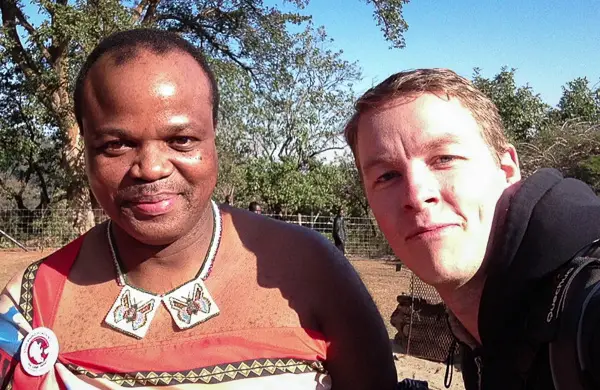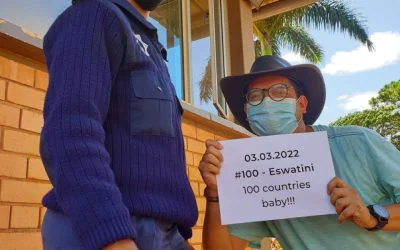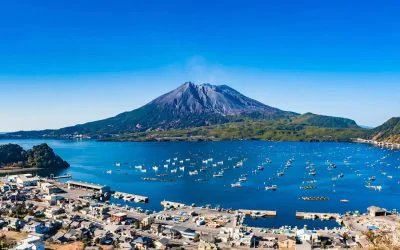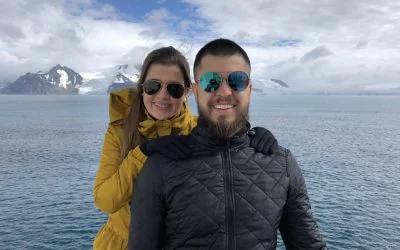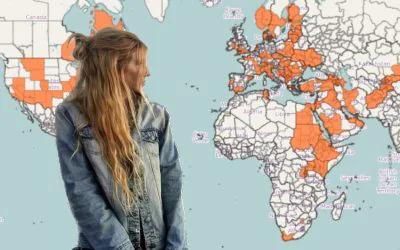Offbeat Travelling is what many of us like to do, and it is also the title of Bart’s website – full of low-budget tips for travel to fascinatingly unusual places.
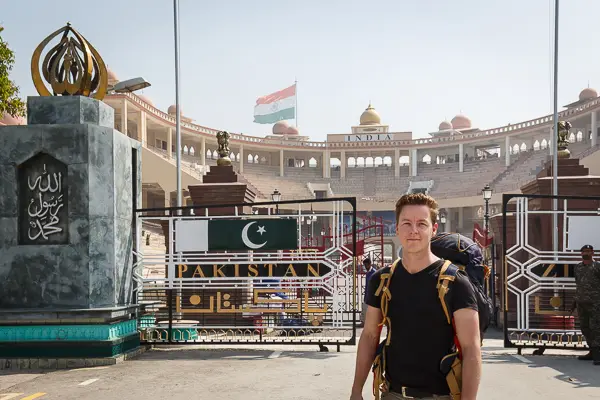
Bart, tell us something about your early years and how you became interested in travel.
It actually took me a while to develop any interest in travel at all. I grew up a normal life in a small Dutch town and mostly wanted to make it big in the music industry. Holidays were once a year, often 3 weeks with friends on the beach, partying, chasing goals of a typical teenager. By the time I turned 21 years old, I did not see any further than the standard west European holiday destinations like Spain, France, Italy, Croatia and Greece.
That all changed in 2009, when I gave up on my music career ambitions and chose Australia for a 6-month break because some friends had done the same. I had zero backpacking experience, no plans and made a ton of (innocent) rookie mistakes. Then I bought a crap old station wagon to sleep in and drove it 14.000 km around the country, bringing along other backpackers as I went. Looking back I admire the incredible freedom and innocence of that time. Everything I did was improvised and low budget. Part out of necessity, but more so because it was just way more fun. That philosophy I continue to believe in to this day.
My 6-month trip, which became four months in Australia and two in Southeast Asia, laid the foundations of more adventures ahead. It marked the start of a new chapter in life. I promised myself to continue to explore the rest of the world and regretted not having done that much earlier.
Since that time I have visited almost 100 countries. No reasons to slow down just yet (other than COVID-19), I still have ambitions to fill the next 10 years.
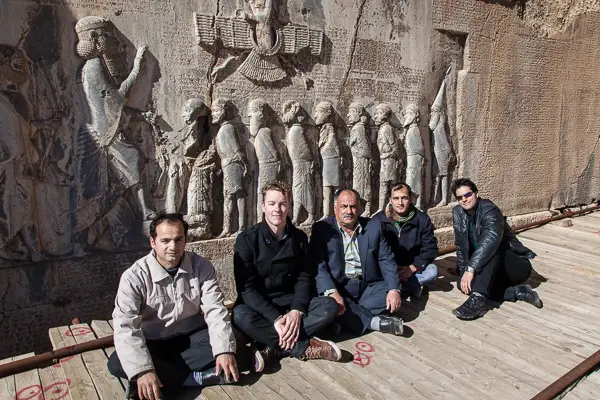
Under normal circumstances, how much of your time do you spend travelling, and what type of traveller are you?
Like most working people in the Netherlands, I try to make the best of my days off, 25 annually to be precise. Usually that means one 3-week trip and 3 or 4 shorter trips. During my student time I travelled a bit more, around 8 times a year, mostly in east Europe.
Big journeys happen every 3 years or so, when I take a break from life back home and travel solo for an extended period. For example between studies I went on a 7-month improvised journey literally around the world. I travelled through 16 countries, incl. Iran, Bangladesh and Cuba. Last year I completed a 3-month solo overland trip through 10 countries in West Africa using public transport. It was the hardest and toughest but most rewarding trip to date.
I travel relatively quickly, but not like ticking off countries. In most countries I visit 3-8 places while spending anywhere between 1-4 weeks. City trips are usually 3-5 days.
By heart I am definitely a low-budget traveller who loves to keep a flexible attitude rather than plan extensive itineraries. I like to hitchhike every now and then, Couchsurf with the locals and eat authentic street food. I have a strong people focus when I travel, meaning that I prefer cities and villages over nature. I love busy places like Cairo, Istanbul, Bamako and Hong Kong to spend time and immerse myself in the lifestyle.
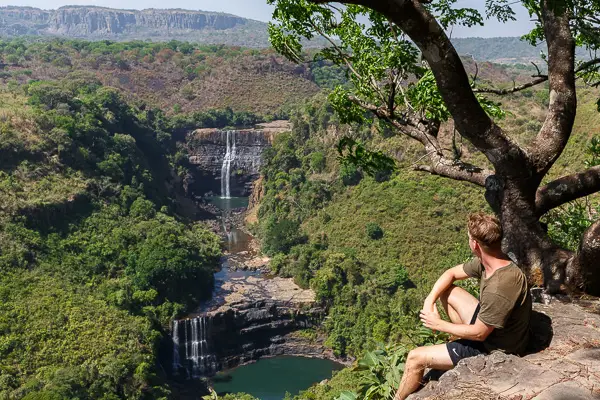
Your website is called Offbeat travelling. What makes it different from the others? And what are your aims with the website?
My website focuses on stories about my travels in the Middle East, Africa, Post-Soviet states and East Europe. These are by far my favourite regions in the world.
The website started in 2016 as a low-key hobby project, 100% self-run and totally independent. I use it to showcase my photos and adventures, provide the occasional travel advice and get in touch with like-minded travellers. I also have a section with fun articles about hypothetical travel routes, for people to dream away at cool little maps I create myself.
All the energy I put in is to provide epic and unique content of high quality. I describe real and independent experiences. I wish I could publish more regularly, but it’s a challenging combination with my full time job. My Instagram account in that sense is a more active place. Especially my stories offer an unedited look beyond the usual.
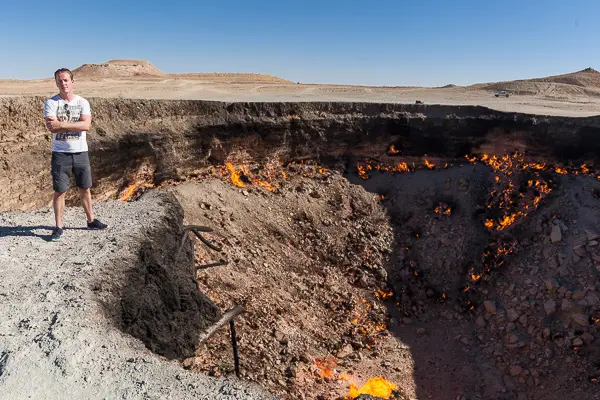
So you are fascinated with the offbeat and bizarre. Which places you’ve been to would you identify are really super-bizarre?
I have visited many, but let’s start with the Wagah border closing ceremony between India and Pakistan. It’s a carefully choreographed routine of angry-looking guards, fist-pumping, speed-marching and kicking their feet up in the air as they lower their national flags. A bizarre yet fascinating show of bombast, military force and national pride. It is however also a bit heavy on the propaganda side, consumed by thousands of spectators each day. I attended from both sides and each had their own unique vibe.
A second bizarre place is Transnistria, a non-recognised break-away state between Moldova and Ukraine still clinging on to Soviet ideals. I spent several summer days there until I was arrested by Russian soldiers and passed on to the KGB for taking a picture of a mural. Turned out that behind the mural was a huge Russian military base, which I frankly had no idea of.
Third, I visited the ship breaking yards in Bangladesh. I was able to directly enter the beach where unskilled workers tear apart huge oil tankers one small step at a time. All they have is their bare hands, a simple blow torch, some winches and a whole lot of courage. Shocking and mind-blowing at the same time.
Last, there is Turkmenistan. The fact that it scores top points for all the wrong reasons, in combination with how hard it is to get in independently. I’ve seen many people trying to get in but without any luck. The country has a complicated political situation, authoritarian rule and incomprehensible architecture. The country is so isolated from the rest of the world, there is just an overall strange atmosphere.
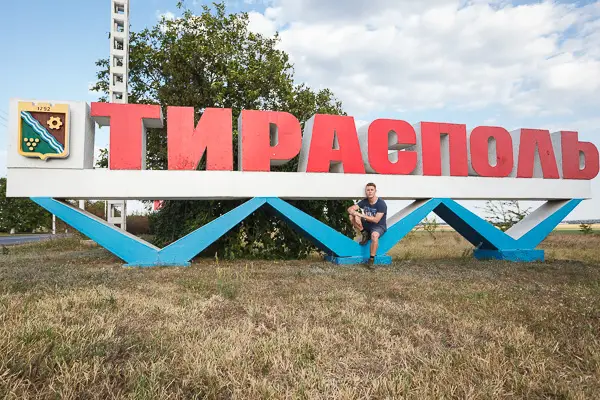
And tell us some offbeat stories that have really stuck in your mind.
Well, talking about Turkmenistan, for years I really wanted to independently visit this mysterious country to see the burning Darvaza crater. To get in by myself I had to pull a trick. I pretended to be a journalist during a global sports event. Maybe not the brightest idea because Turkmenistan is pretty much the worst place on Earth to be a journalist (on par with North Korea).
Long story short, I was able to break away from my personal government minder early morning and secretly hitchhike from Ashgabat into the Gobi Desert to search for the crater. With screenshots from Google Earth, GPS and a lucky encounter with a local, I was able to track the place down. Together with a Czech partner in crime we roasted ourselves in the flames, took some pictures and then quickly returned back to our hotel. It was one of the greatest and riskiest challenges in my life that took 15 hours in total, all just for 15 minutes at the crater.
Another crazy story was sneaking into a ceremony in Swaziland to see if I could meet King Mswati III. The event was heavily guarded by the national army, but for some reason they never checked security on white people. So I waited out the entire ceremony and afterwards boldly approached the King. I had no idea about who he really was, so I improvised a short chit-chat and pulled out my iPad as we agreed to take a selfie. His security men were stunned and amusedly told me I was the first ever to do that.
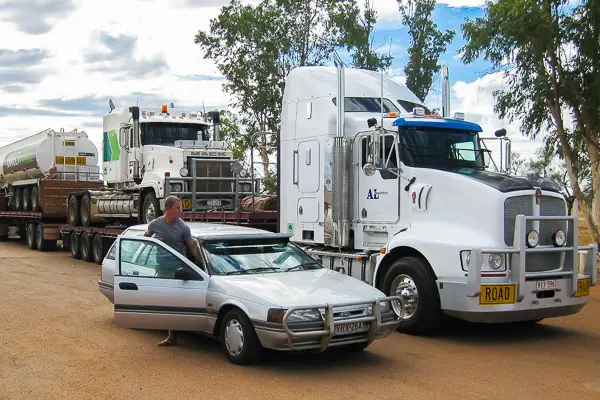
Is Western Europe ‘boring’ for you, then, or are there still offbeat things to do in this part of the world?
Well, I don’t necessary live a boring life back home but I would certainly not be able to tell you many offbeat things to do. Atlas Obscura used to be a good website for inspiration, but it lost its focus and now promotes many commercial things like museums, quirky restaurants and bars. One thing that comes to mind is Christiania in Kopenhagen. This is like a semi-autonomous part inside the heart of the city where police don’t dare to go out. It hosts a lot of illegal underground (drug-related) activity but at the same time Christiania also attracts a lot of innocent and creative spirits who give the neighbourhood a unique and artistic vibe.
Other than that, I think Western Europe is much more of an organised place with relatively few ‘real’ offbeat things to do. Call it boring from an adventure perspective, but we do have a ton of history, beautiful architecture and a great and comfortable lifestyle. For me it’s ideal to live here and have a base to travel to other parts of the world when I’m looking for adventure
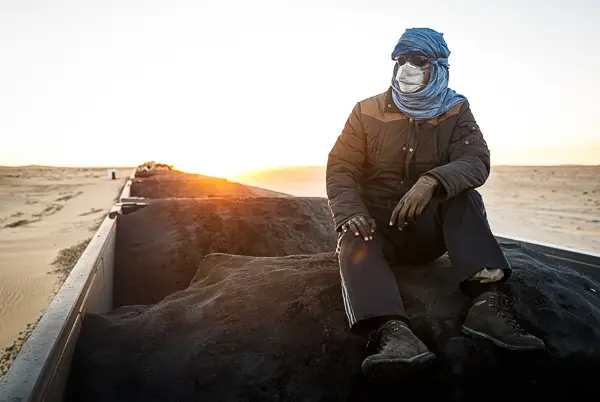
You are from Netherlands. Would you say you are quintessentially Dutch or not, and how has that influenced your view of the world?
I certainly feel like a typical Dutch person. At times I can be rather direct and straightforward, I often tend to think in terms of efficiency and look at things from an economical point of view . When I first travelled the world I was amazed by how people can navigate in these chaotic open air markets without price tags and use public transport without any clear signs. Over the years I have certainly become a bit more balanced. I realise there is no single truth, my perceptions are not always accurate and my ideas not always necessarily the best.
Other than that, travel also shaped my perspective on food. I now love cooking Middle Eastern cuisine as it brings me back to all the fantastic places I visited throughout Lebanon, Iraq, Jordan, Palestine and so on.
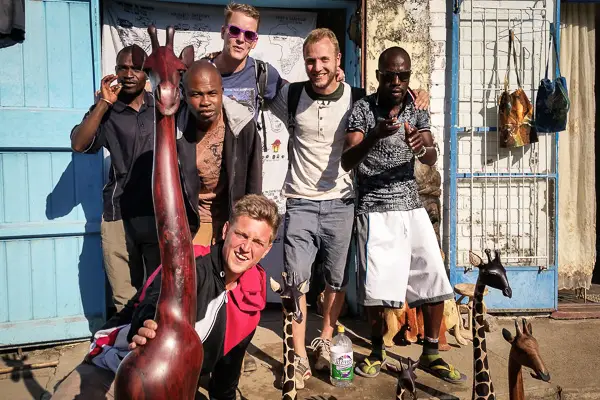
And what are some great things to do or see in the Netherlands that travellers may not know?
I guess 90% of oversea tourists in The Netherlands only visit Amsterdam and the Zaanse Schans. Unfortunately that puts its toll on our capital. In fact the city centre has become a caricature of itself, fuelled by the constant influx of stag parties and foreigners all looking for the same things.
If you are looking for something really great, I would suggest spending a sunny day out on the water. We have excellent fresh water lakes and canals, like the Loosdrechtse Plassen, the river Vecht and the Vinkeveense Plassen. You can rent a small motor boat and bring your own little bbq and cold drinks.
If a boat is not your thing, going around the Veluwe by bike is another great idea. Stop by at a family-run cafe and eat an authentic Dutch “2 boterhammen 2 kroketten” for lunch.
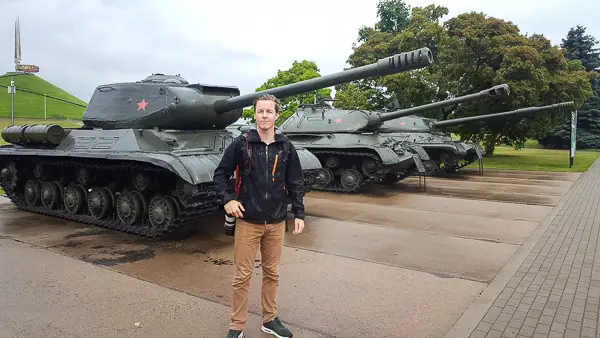
The world is now going through an unprecedented historical period. What is your take on this and what will happen to travel for the next few years?
To be fair, I think we should all consider 2020 a lost year for travel. Lockdowns will ease, but restrictions will remain highly unpredictable and vary across countries. Also regular flight schedules I think will take a while to be restored fully.
Finding peace in staying put for a while would be my best suggestion. Now is not the time to chase personal travel goals. On a positive note, you can start to appreciate even more the places you already visited and for example organise your photos.
Post-COVID-19 things can go many ways. Surely many people will want to catch up on lost travels (including myself), while others might have lost the funds to do anything at all. On top, I expect some airlines, tour operators, hotels, backpacker hostels, etc. not to survive the current lockdown measures financially. This, together with an emerging 1.5-meter economy, could impact travel in many ways
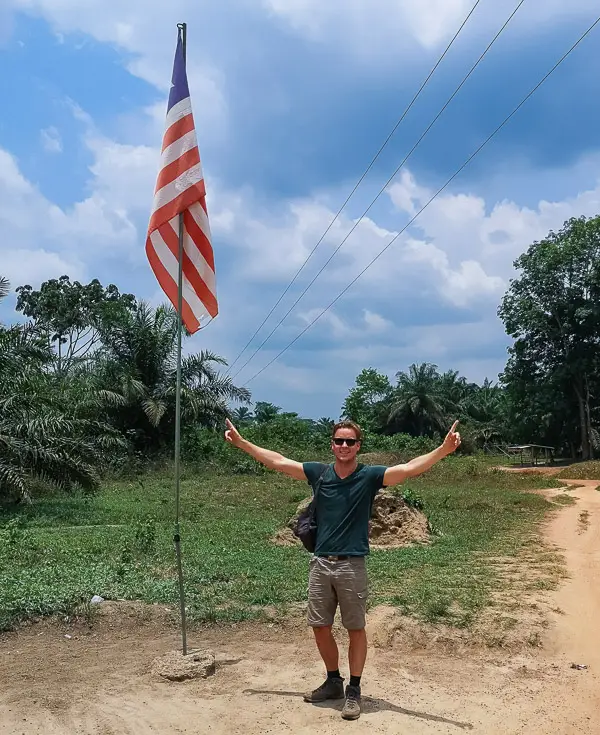
Finally, our signature question, if you could invite any four people to dinner from any period in history who would you invite?
Very difficult question. I am supposed to mention famous people right? Truth is that I would just pick ‘ordinary’ backpacking people who travelled way back in the day, to learn how it was the authentic and ‘real’ way without airports, Instagram and GPS maps. I am particularly interested in those who ventured into places like Afghanistan, Central Mali, the Levant, etc.
Anyway, let’s see if I can pick four people. Travel in the ancient world of Islam, along the Silk road, throughout different empires, etc. This is the stuff that fascinates me. Some top names in that perspective are Ibn Battuta and Marco Polo. I would introduce them to two photographers with a strong people focus who know a fair bit about the world too. That way Don McCullin and Joey Lawrence will complement the dinner group. Letting them travel alongside, wouldn’t that be fantastic?
